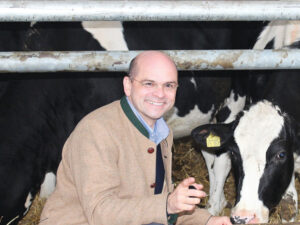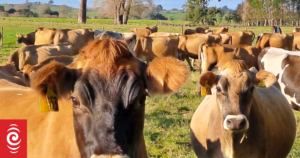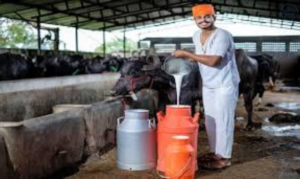
“We at Ministry for Primary Industries (MPI) and you at Dairy News said over six months ago that the dairy industry would bounce back, and it has done so with interest.”
MPI Director General Ray Smith made the comment as his organisation released its latest outlook report on the primary sector, which shows that in 2024, export returns from the sector dropped 11% from a high of $26 billion in 2023.
But MPI is now saying that export returns from dairy in 2025 will hit $25.5 billion, just as Dairy News reported last year. The reason for the bounce back is the higher returns for whole milk powder (WMP) – now predicted to be $8.4 billion – up over a billion in 2024. Butter, AMF and cream are predicted to reach a high of $5 billion this year – again a billion more than last year. The one product that is not doing well is infant formula, with export returns down last year and likely to fall further again this year.
The MPI report says global dairy prices are expected to be higher in the 2024/25 seasons due to strengthening global demand and tight supply. It says favourable weather conditions around NZ will likely lead to an increase in export volumes and predicts a $9.60 per kg/MS in this season.
With the exception of casein and protein products, China remains the biggest market for all other dairy products and overall China imports nearly $17 billion of our total primary products.
Smith says the reason the dairy industry is so successful is that the fundamentals of it are just so strong. He says global demand for ingredients is very strong and the range of things you can do with those ingredients is enormous.
“Look at the amazing things the food service sector produces by using high-fat products, creams and so on. I think you are going to see ongoing demand for NZ’s dairy products because we have a competitive advantage in producing high quality products at relatively low prices,” he says.
Smith says the good weather will probably increase the amount of milk produced on farm, but he believes this won’t be a problem because volumes across the world are down. He notes that the size of the US dairy herd is down due to climate related matters, and heat stress in some countries is reducing milk production.
On climate change, Ray Smith says NZ has an advantage over other global dairy suppliers.
“This is because of where we are located and that means that climate change is not going to impact us as greatly as other countries. Remember we are not trying to grow grain to feed animals,” he says.







